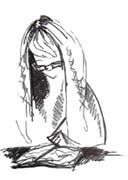 The journal where I volunteer has this "Tobias Wolff Fiction Award" that they give out every year, and I've always felt a bit awkward checking in entries for awards when I've never read anything by the authors they're named after--but only I would feel weird about that.
The journal where I volunteer has this "Tobias Wolff Fiction Award" that they give out every year, and I've always felt a bit awkward checking in entries for awards when I've never read anything by the authors they're named after--but only I would feel weird about that.So I set out to read Tobias Wolff. I mean, he's not just an award-winning author, is he? He must be a master at the short story to get short fiction awards named after him.
And that's pretty much right. I never quite got into Raymond Carver (the American master of the short story, or whatever titles have been ascribed to him). Never cared much for his selfish, whiny, "true-to-life" characters, though there was something lively and direct to his writing style that I appreciated. Tobias Wolff takes that liveliness and runs, creating stories around characters that I don't have to like in order to enjoy (make sense?), putting them in situations where I can't help but feel oddly unified with them, whatever decision they make, for ten or fifteen pages.
The man's pretty much a short story genius. He creates these little scenes where something significant happens, though you're not always sure what--not even after you finish the story. Wolff drops you right in the midst of things, giving you only what's necessary to help you find your bearings--he never states a character's age or race or location outright, but feeds it to you hint by hint. I think this is brilliant.
I really hate it when an author sits a character in front of a mirror, to put her make-up on, say, and then describes in boring detail what she looks like and how she feels about her looks, blah blah blah. It just feels so gimicky--"here, let's take a break from the story and make sure you can picture the main character, right down to the gap between her teeth." I much prefer when an author sneaks something crucial in by making mention of a certain gesture, or a favorite drink. Doesn't matter much then what she looks like, physically--how a favorite dress fits can give a much clearer indication of what sort of person she is. Example:
She had on a sleeveless dress, yellow with black flowers, that she knew to be ugly and wore anyway, because it made people conscious of her.I like this directness in short fiction. When authors mess around forever making sure that I have the feel of the story just right, I get annoyed. Wolff is very kind about not doing that.--"Sanity", p. 75
My favorite story in the collection? "The Other Miller". Oh yeah, and "Bullet in the Brain." Whew.
RATING: 3

No comments:
Post a Comment